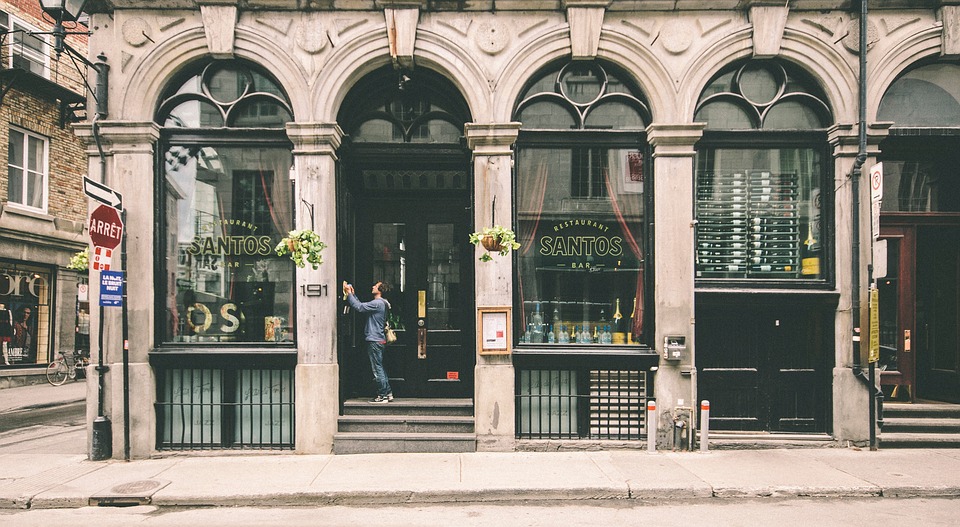La francophonie du Canada Posted by Bridgette on Aug 27, 2021 in Culture
La francophonie du Canada – French‑Speaking Canada
Canada is officially a bilingual country (un pays bilangue), with English and French as the two official languages. The Canadian Charter of Rights and Freedom (la Charte des droits et libertés), which was part of the Constitution Act (la loi constitutionnelle) of 1982, strengthened the status of both languages by stating that “the public has the right, where there is sufficient demand, to receive federal government services in either English or French”. In 1988, the Official Languages Act (la loi sur les langues officielles) clarified this requirement, giving French and English equal status and defining how services are provided for linguistic minorities (including French‑speakers in the anglophone parts of Canada and English‑speakers in francophone areas). (During the COVID pandemic, Canada PM Justin Trudeau came under fire for importing and selling unilingual labeled items, thus not upholding the French language.)
In reality, the majority of the population is monolingual; less than 20% of Canadians speak both English and French. Anglophones (les anglophones) constitute the linguistic majority, while French‑speakers constitute the most significant linguistic minority. Francophones1French speakers (les francophones) are mainly concentrated in three provinces (les provinces) : Quebec (le Québec), New Brunswick (le Nouveau‑Brunswick), and Ontario (l’Ontario). More than 95% of the francophone population, as well as the majority of bilingual Canadians, are found in these three provinces. New Brunswick is the only officially bilingual province in Canada. In Quebec, French is the only official language (la langue officielle).
Since 1974, French has been the only official language of Quebec. It is the only province with a francophone majority (la majorité), and eighty‑five percent of Canadians who speak French as their first language live there. Montreal is the largest francophone city in North America (l’Amérique du nord). In fact, Montreal is considered the second largest francophone city in the world after Paris. As the only Canadian province where the francophone population is not declining, Quebec attracts a large number of immigrants from French‑speaking areas of the world.
In 1977, Quebec enacted the Charter of the French Language (la Charte de la langue française) in order to protect and promote French as the language of all Quebecers (les québécois) while respecting the constitutional rights of English‑speaking residents. As a result, the language of instruction (la langue d’enseignement) is French, with English taught as a second language starting in elementary school (l’école primaire). At the request of parents, instruction can be provided in English. French is accepted as the primary operating language of the province, just as English is accepted in the rest of Canada. Interestingly, Quebec is the province with the largest bilingual population: most of the workforce is bilingual, since workers are often required to speak English in the private sector (le secteur privé).
Here are some vocabulary differences between Canadian French and European French:
un chum – un copain2boyfriend
une blonde – une copine3girlfriend
le char – une voiture5a car
le stationnement – le parking6parking lot
la facture – l’addition7the bill
le déjeuner – le petit-déjeuner8breakfast
le dîner – le déjeuner9lunch
le souper – le dîner d10dinner
le courriel – le mail 11email
la fin de semaine – le week-end12weekend
le breuvage – le boissond13drink
La gomme à mâcher – le chewing-gum 14chewing gum
Faire du magasinage – faire du shopping15 to go shopping
La pinotte – la cacahuète 16peanut
Watcher – regarder 17to watch
Truster – faire confiance 18to trust
La job – le boulot 19job
Un cellulaire – un portable 20cellphone
- 1French speakers
- 2boyfriend
- 3girlfriend
- 4cents
- 5a car
- 6parking lot
- 7the bill
- 8breakfast
- 9lunch
- 10dinner
- 11email
- 12weekend
- 13drink
- 14chewing gum
- 15to go shopping
- 16peanut
- 17to watch
- 18to trust
- 19job
- 20cellphone

Build vocabulary, practice pronunciation, and more with Transparent Language Online. Available anytime, anywhere, on any device.




